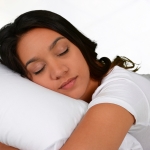In a recent randomized, single-blind, controlled, clinical trial, 187 postmenopausal women reporting at least 7 hot flashes per day received five weekly sessions of either clinical hypnosis or structured-attention control. Hot flash score were assessed by daily diaries on weeks 2 to 6 and at week 12.
At the12 week follow up, women receiving the clinical hypnosis intervention reported a mean reduction in hot flash frequency of 74.16% versus17.13% for the controls (P < 0.001). For women in the hypnosis group, hot flash scores decreased by 80.32% versus 15.38% in the control group (P < 0.001). Women in the hypnosis group were also more likely than the controls to report decreased hot flash-related interference, improvement in sleep quality, and treatment satisfaction.
This study indicates that clinical hypnosis may be a useful option for the management of menopausal hot flashes. One of the most encouraging aspects of this study is that the effects of hypnosis on hot flashes persisted beyond the active treatment phase. In a recent study where hot flashes improved after treatment with the SSRI, escitalopram, about one third of the women experienced a relapse of their vasomotor symptoms within three weeks of discontinuing the medication. The present study indicated there was no change in hot flash scores measured six weeks after the last hypnosis session. How long the positive effects of clinical hypnosis may last we do not yet know; this will undoubtedly be a topic of further study.
Ruta Nonacs, MD PhD
Elkins GR, Fisher WI, JohnsonAK, et al. Clinical Hypnosis in the Treatment of Postmenopausal Hot Flashes: A Randomized Controlled Trial. Menopause. 2013;20(3):291-298.







Leave A Comment